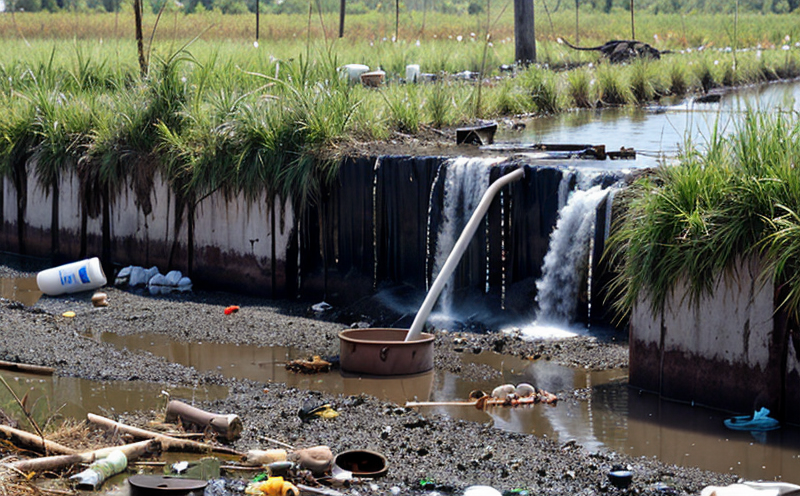Groundwater Pollutant Testing
Groundwater is a critical resource that provides drinking water to millions of people worldwide. The quality of groundwater can be significantly affected by pollutants from various sources such as agricultural runoff, industrial waste, and urban pollution. Groundwater pollutant testing plays an essential role in ensuring the safety and purity of this vital resource.
Our laboratory specializes in providing comprehensive groundwater pollutant testing services that comply with international standards like ISO 17025. We utilize advanced analytical techniques to detect even trace levels of contaminants, offering reliable and actionable data for stakeholders involved in water quality management.
The process begins with the collection of representative samples from various depths within the aquifer system using appropriate sampling equipment. After sample collection, rigorous laboratory procedures ensure accurate analysis by experienced technicians employing state-of-the-art instrumentation such as gas chromatography-mass spectrometry (GC-MS) and inductively coupled plasma mass spectrometry (ICP-MS).
Our testing covers a wide range of pollutants including heavy metals like lead, arsenic, and mercury; pesticides and herbicides from agricultural practices; and volatile organic compounds (VOCs) released through industrial activities. Additionally, we can assess biological indicators such as coliform bacteria levels to evaluate overall water quality.
Once testing is complete, detailed reports are generated highlighting all detected pollutants along with their concentrations relative to regulatory limits specified by relevant authorities. These documents serve not only compliance purposes but also support decision-making processes related to remediation efforts or preventive measures against future contamination incidents.
Industry Applications
In the manufacturing sector, ensuring pure groundwater supplies is crucial for maintaining operational efficiency and worker health. By regularly testing for pollutants such as benzene from petrochemical plants or nitrate compounds introduced via fertilizer runoff, companies can identify potential risks early on.
For agricultural enterprises, monitoring pesticide residues in underground waters helps prevent contamination of crops destined for human consumption while adhering to strict environmental regulations set forth by governing bodies. This practice ensures sustainable farming practices and protects both natural ecosystems and public health.
In urban settings, municipal water departments rely heavily on groundwater pollutant testing results when assessing treatment plant performance or investigating suspected leaks around pipelines. Such information enables them to implement targeted interventions aimed at minimizing further pollution while restoring affected areas back into compliance with environmental standards.
Why Choose This Test
- Accurate detection of trace pollutants down to parts per billion (ppb) levels
- Compliance with international quality assurance protocols ensuring credibility and reliability
- Use of cutting-edge technology including multi-dimensional chromatography systems and mass spectrometry for precise measurements
- Detailed reports providing actionable insights backed by scientific evidence
Environmental and Sustainability Contributions
By conducting thorough groundwater pollutant tests, we contribute significantly to environmental protection initiatives. Our work assists governments and organizations in identifying sources of contamination so that appropriate corrective actions can be taken promptly.
The findings from these tests help promote sustainable development by guiding policy decisions towards more eco-friendly practices across industries. For instance, if a particular industrial site is found responsible for releasing harmful chemicals into the groundwater, stakeholders may consider transitioning to cleaner production methods or investing in better wastewater treatment facilities.
In addition, our services support conservation efforts aimed at preserving natural habitats where clean groundwater plays a vital role. By preventing pollution from spreading further underground, we help maintain biodiversity and support healthy aquatic ecosystems upstream.





